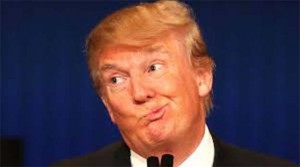
President Trump is revealing that China's plan to cut tariffs wasn't actually plan, but a starting point for negotiations.
Just days after President Donald Trump emerged from a 2-1/2 hour dinner with China’s Xi Jinping claiming to have an “incredible” trade deal that would, among other things, roll back automotive tariffs, it appears that little to nothing concrete was resolved between the two leaders.
That leaves the auto industry in limbo as manufacturers on both sides of the Pacific try to figure out precisely what to do now, especially when it comes to bilateral automotive exports. Several manufacturers, notably including BMW and Volvo, have been hinting that if the trade war continues they may have to transfer some of their U.S.-based production to plants in China.
Following the meeting with Xi at the end of the G-20 conference in Argentina last Sunday, Trump tweeted, “China has agreed to reduce and remove tariffs on cars coming into China from the U.S. Currently the tariff is 40%.” But he and others in the White House have been forced to backtrack, Trump’s National Economic Council advisor Larry Kudlow telling Fox News a deal “hasn’t been signed and sealed and delivered yet.”
Even that characterization appears to put a more than appropriately positive spin on whatever came out of the Trump-Xi dinner meeting. In a series of new tweets, Trump himself said that “The negotiations with China have already started,” a comment that makes clear there is no agreement in hand that would affect potentially hundreds of billions of dollars worth of trade, including cars and car parts.
(Trump claims China will cut auto tariffs. Click Here for the story.)
The president continued by saying his White House team will be “seeing whether or not a REAL deal with China is actually possible. If it is, we will get it done.” He continued that it “probably will.” And, if not? In yet another tweet, Trump led off by declaring himself “a Tariff Man.” He went on to decare that the U.S. is “now taking in $billions in Tariffs. MAKE AMERICAN RICH AGAIN.”
Of course, there are some potential flaws with that statement. For one thing, tariffs are simply another word for taxes on imports – and by increasing tariffs on Chinese-made cars and car parts from just 2.5% to 27.5%, Trump has priced some products out of the market while, in other instances, has added hundreds of dollars to the price Americans pay for vehicles. At the same time, China has raised tariffs on American-made vehicles from 25% to 40%, an ironic development considering the Chinese cut tariffs on auto imports from other trade partners to just 15% this year.
And that is hurting American auto manufacturers and American auto workers.
Last year, about 250,000 American-made cars, trucks and crossovers were shipped to China, a figure that has actually been on the increase. Volvo, in particular, had been planning to ship new S60 sedans to China from its new plant outside Charleston, South Carolina. But that strategy is now up in the air.
(Click Here for more about Trump’s plans to end EV subsidies.)
“We … thought Charleston could build cars for China,” Volvo’s global CEO Håkan Samuelsson told USA Today during an interview at the Los Angeles Auto Show last Wednesday. “That will not work,” Samuelsson added, noting that Volvo would consider shifting some production from Charleston to China, impacting production levels and hiring at the plant.
BMW, meanwhile, has also indicated it is reviewing its strategy of using its Spartanburg, South Carolina plant as its primary global production facility for sport-utility vehicles like the X5. It could wind up shifting some production to China, including the all-new X7 launched at the L.A. Auto Show last week.
As the White House itself fails to shore up the initially ebullient claims made by Trump, observers are starting to fret, and the excitement on Wall Street seems quickly to have worn away.
“It doesn’t seem like anything was actually agreed to at the dinner and White House officials are contorting themselves into pretzels to reconcile Trump’s tweets (which seem if not completely fabricated then grossly exaggerated) with reality,” said an advisory issued by JPMorgan.
(To see more about Volvo potentially adjusting its manufacturing plans in South Carolina, Click Here.)
Automakers and parts suppliers are clearly hoping that the White House actually can come to some sort of settlement with the Chinese. But the longer things remain in limbo the more the auto industry – like so many other industries – will have to come up with alternatives that could mean shifting business and jobs out of the U.S., precisely the opposite of what Trump said was the reason for an “easy to win” trade war in the first place.
